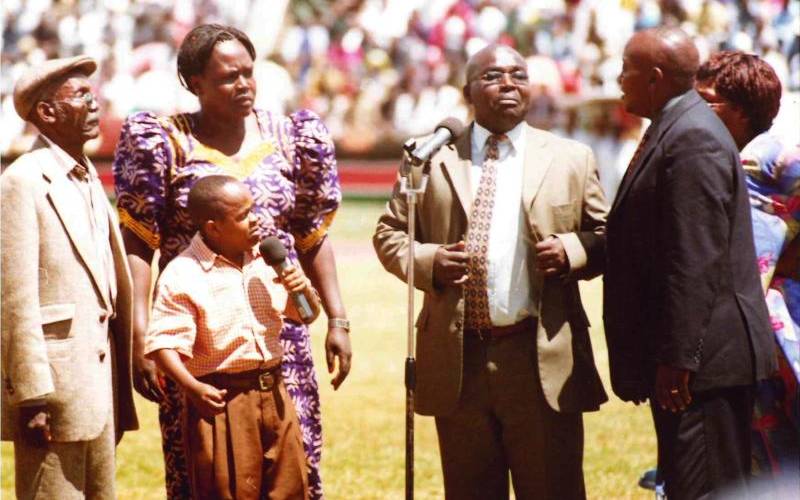×
The Standard e-Paper
Fearless, Trusted News

When thinking of Kenyan comedy, Daniel Ndambuki famously known as Churchill comes to many people’s minds. Give it up to the funny man. Having made his debut in comedy back in 1996, Churchill has become a household name thanks to his Churchill Show TV comedy.
To many comedians, among them MC Jessy, Captain Otoyo, Eric Omondi, Chipukeezy and Owango Onyiro, he is a father, a mentor who has created a platform and opportunity to nurture comedians’ careers. Many comedians in the country owe him recognition.